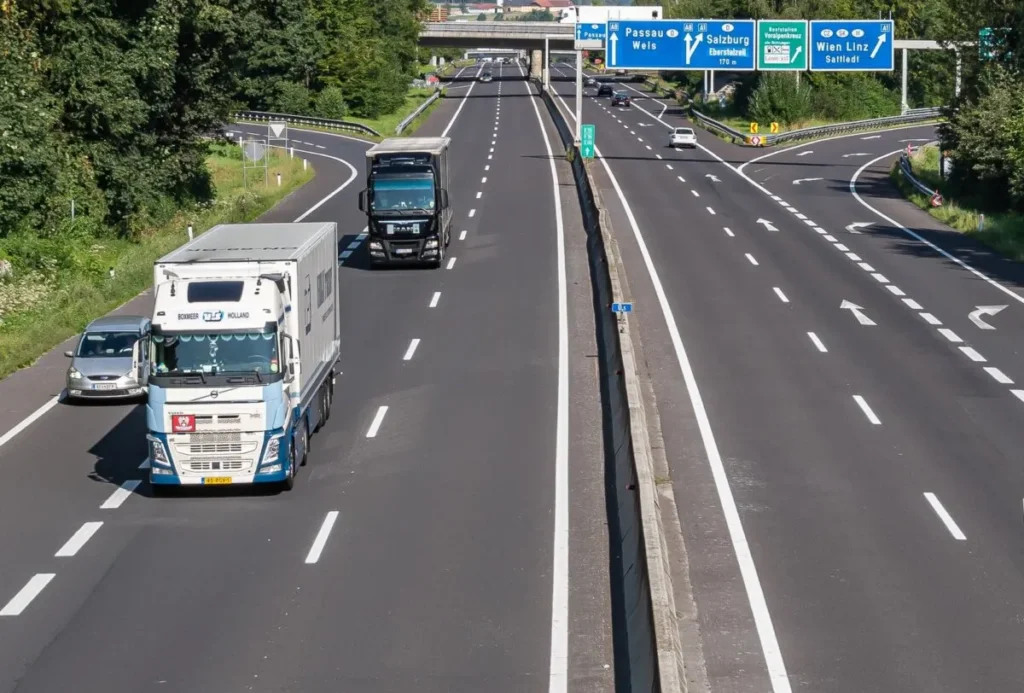The Laupheim-based operator, with 60 trucks, 50,000 square metres of warehouse space, and 120 employees, told the local portal schwaebische.de about the impact of last year’s toll increases in Germany on his business and the entire national transport sector. He states that he, despite being well-established in the industry, has had to make risky decisions that could jeopardise the operation of his business.
However, he notes that his company is still in a comfortable position compared to others. According to him, the number of insolvencies among hauliers and freight forwarders in Germany has increased by 35 per cent since December’s drastic toll increase.
“A wave of bankruptcies is coming. We have 35 per cent more bankruptcies than in March 2023. On top of that, many medium-sized freight forwarders are giving up their businesses because of their age, or they are merging with large shipping companies. This impacts competition. When shopping in the supermarket, customers will notice that everything is becoming even more expensive. Everyone already felt this when toll rates almost doubled,” Barth said on the website.
The freight forwarder also commented on the increases, revealing how much his business costs have risen.
“Firstly, it does not stop at 83 per cent (the amount by which toll rates for certain groups of vehicles in Germany increased in December 2023 – Editor’s note). In fact, it is 100 per cent if you add up the empty mileage. Specifically: in January 2024, we had to pay around 105,000 euros in tolls. In January 2023, it was only 55,000 euros, which is more than double,” calculated the Baden entrepreneur.
He added that his company is coping with this burden mainly because his customers have largely absorbed the costs associated with the toll increase. At the same time, Barth admitted that he has also had to carry out transports where he bore the additional costs resulting from the higher toll rates.
“The first quarter was exceptionally bad. Freight prices were very low, and there was an oversupply of trucks. We had to drive cheaper than before 1 December 2023, when the new truck tolls were not yet in force. Large drops in demand were seen in the construction industry, mechanical engineering, and automotive suppliers,” pointed out the freight forwarder.
He noted that although the German economy is improving somewhat, the TSL industry is still in a difficult position.
“In this situation, high truck tolls are a disaster for many colleagues. The industry is under enormous pressure. Family businesses are extremely vulnerable. The cost pressures are enormous,” he stressed.
German road haulage insolvencies
Has the percentage of insolvencies in the German TSL industry really increased as much as depicted by the Baden-Württemberg-based freight forwarder? Unfortunately, yes. According to the Federal Statistical Office, the number of company insolvencies rose by more than 27.6 per cent in January, with the highest frequency of insolvencies observed in the transport and warehousing industry. For every 10,000 companies, there were 4.7 insolvencies in Germany in January 2024; in the TSL industry, there were 9.1 bankruptcies for the same number of companies. The number of company insolvencies also increased in February and March compared to the same period last year.
Although, according to the German Association of Insolvency Practitioners (VID), it is not yet possible to speak of a wave of bankruptcies, this trend in the transport industry should not be ignored.
The Federal Association of Logistics and Transport (BLV-pro) recently warned that the transport industry is facing a significant increase in insolvencies. Companies affected by the current economic and geopolitical situation will face difficult decisions and will have to adapt to new realities.
Citing insiders, the association estimates that around one-third of toll costs cannot be paid as contracted due to a lack of liquidity, with leading insurers even terminating contracts with customers having difficulty paying.
“Now the apocalypse begins for many,” the association summed up the situation.









